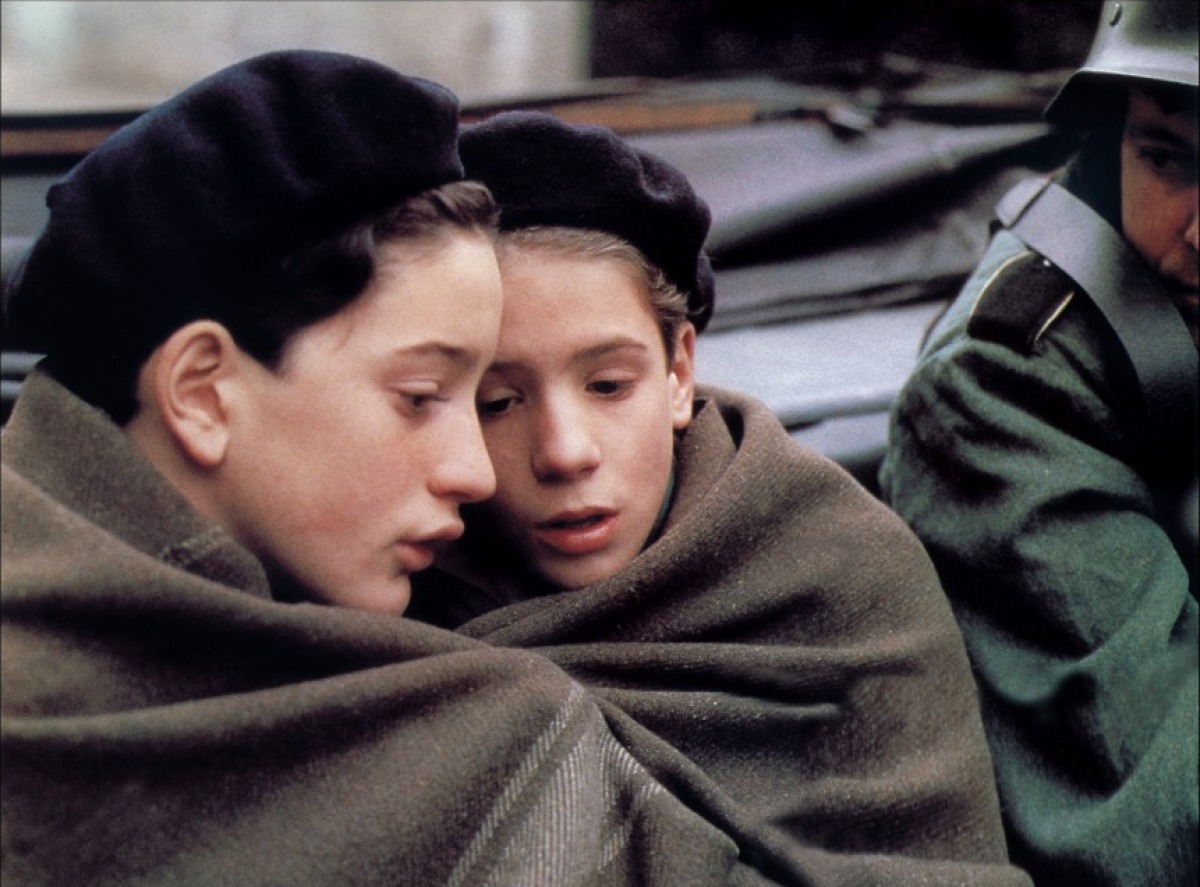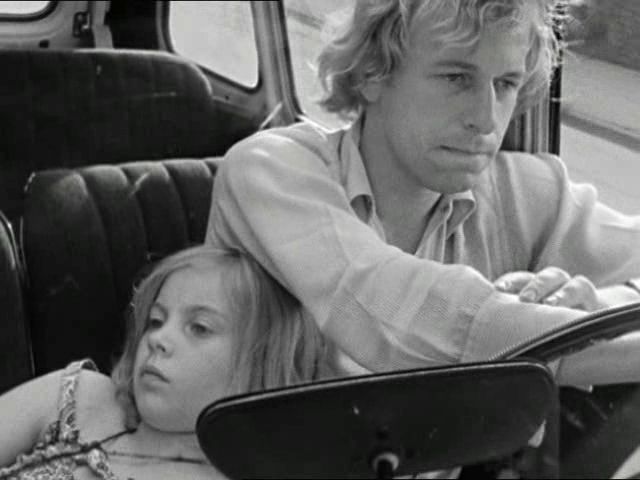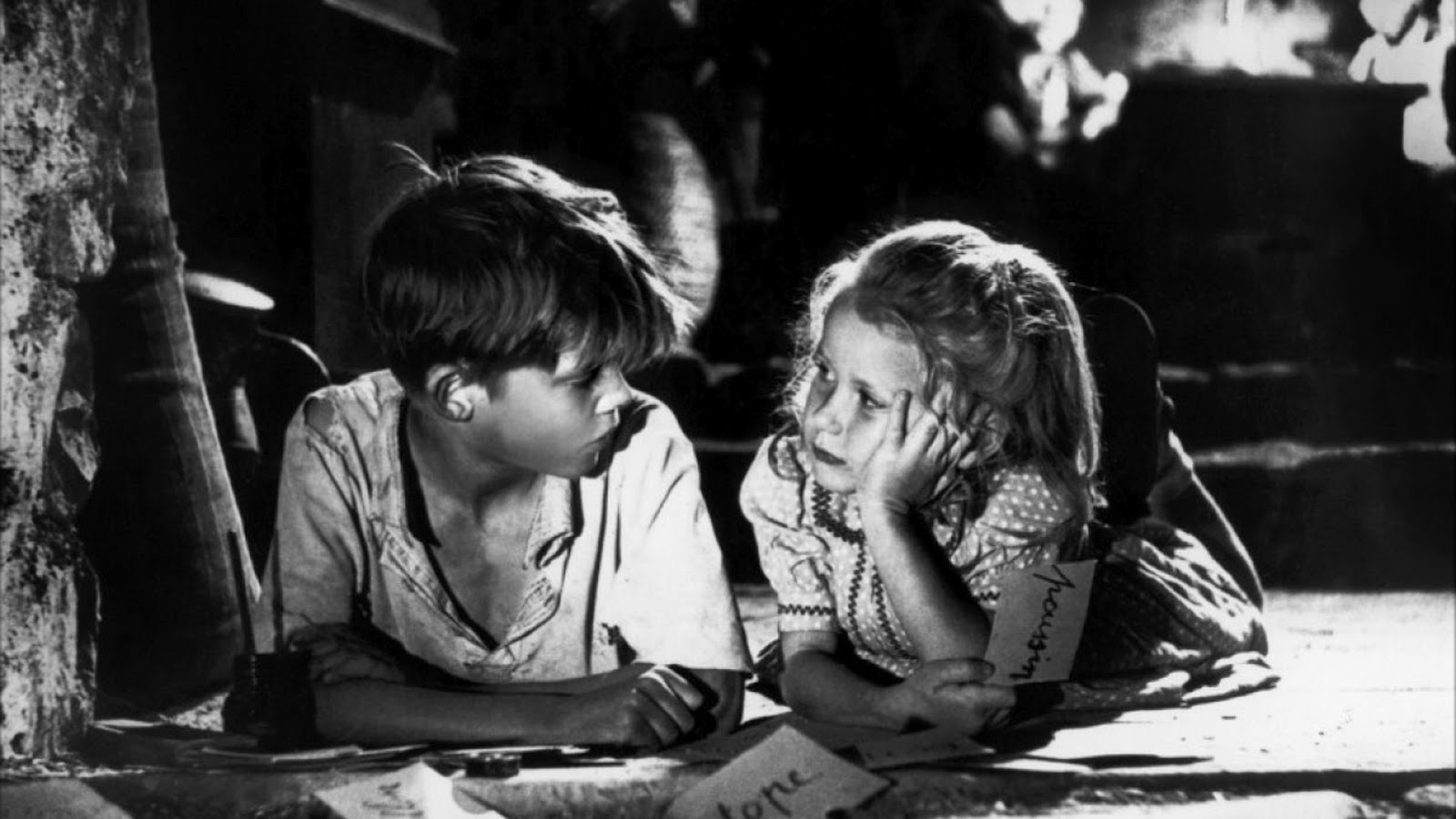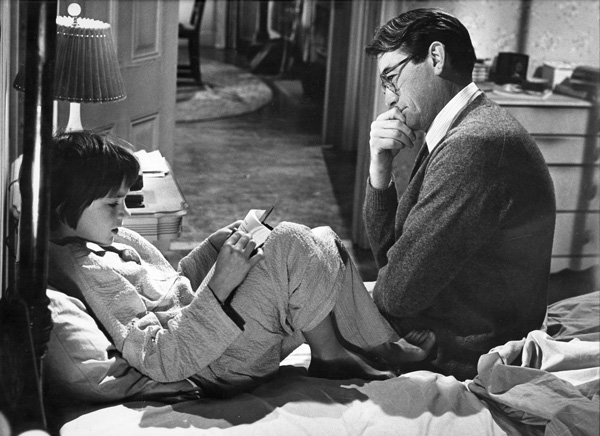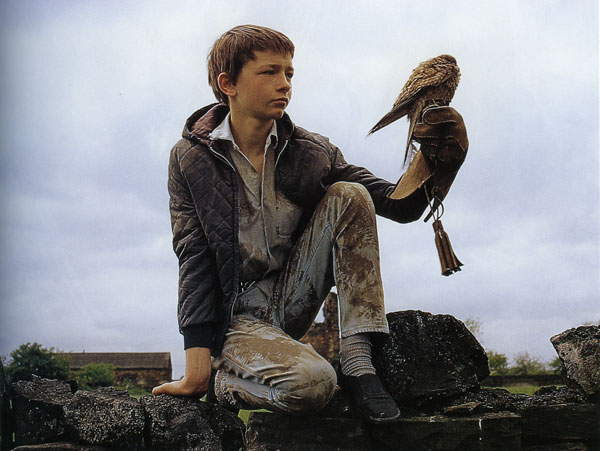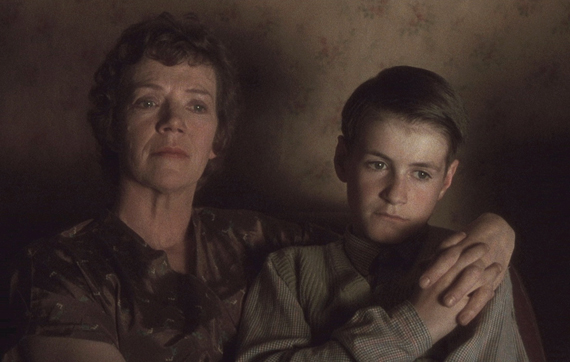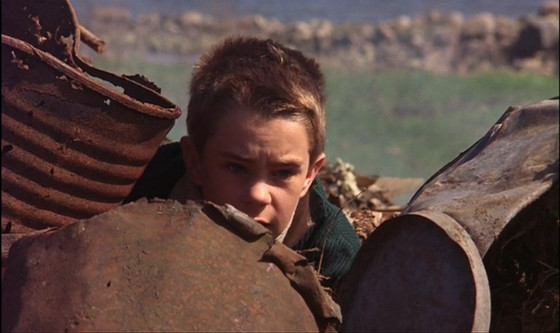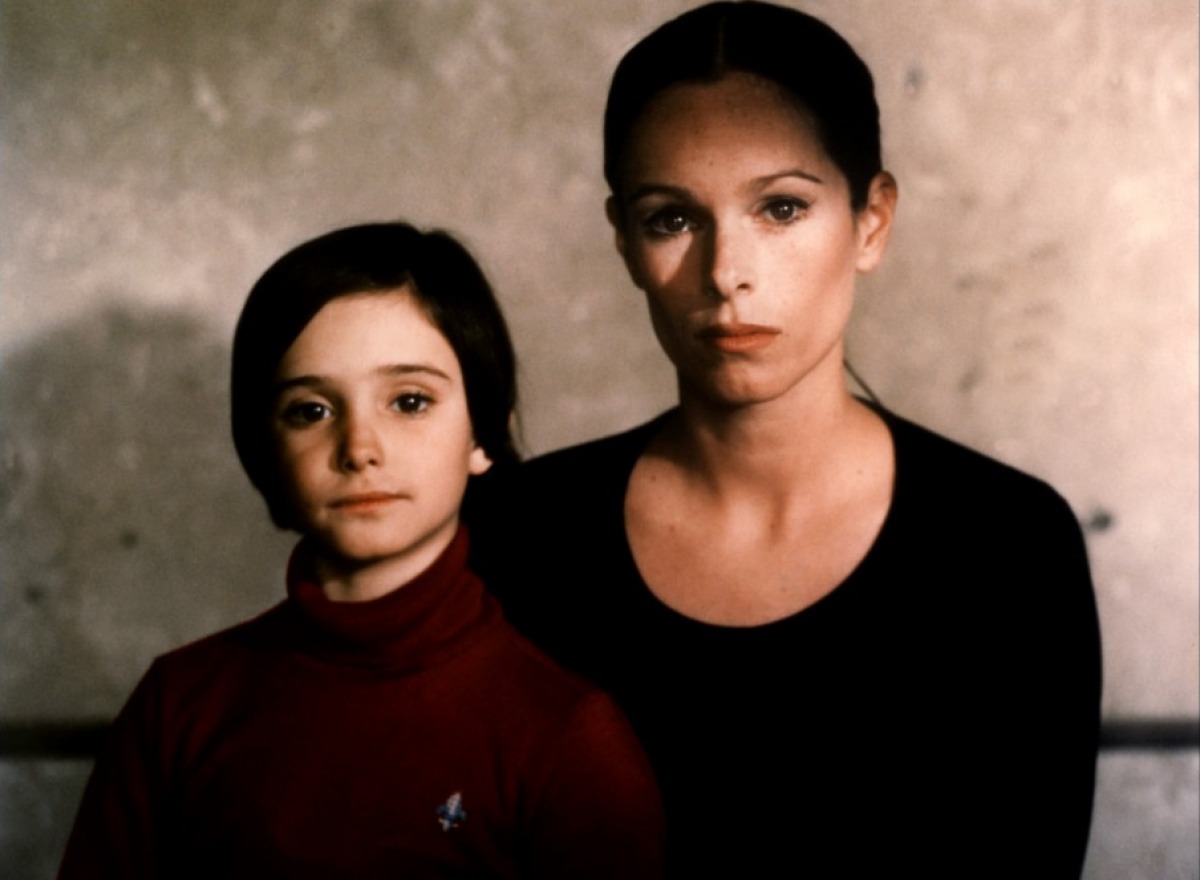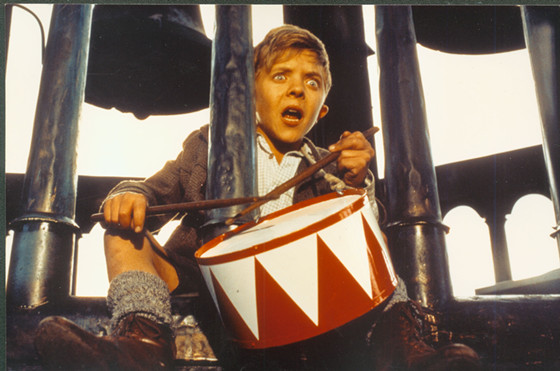17. Au revoir les enfants (Dir. Louis Malle, 1987)
Julien Quentin (Gaspard Manesse) returns to his boarding school amidst the wreckage and rubble of WWII. He befriends Jean Bonnet (Raphaël Fejtö), a Jewish boy who is hidden by the priests at the school. The occupying forces are closing in, and it isn’t long before Julien realizes the severity of the situation.
The story is based on the atrocities Malle witnessed as a child in occupied France. Candice Bergen (Louis Malle’s widow) said this was a film that Malle needed to make because the story had haunted him since his childhood. Its cool color palette and intimate images create a tragic portrait of innocence lost. The carefree and crafty Julien must grow up in order to deal with the harsh reality that his good friend may be killed.
16. Alice in den städten (Dir. Wim Wenders, 1974)
Philip Winter (Rüdiger Volger) is a roving writer who agrees to watch over Alice (Yella Rottländer), the daughter of an elusive young woman (Lisa Kreuzer). When he discovers that his custody of Alice may be permanent, Philip wanders with the child in search of Alice’s grandparents.
Wenders began his Road Trilogy with this poignant depiction of a relationship between a wandering writer and a young child. Rottländer is astonishing, playing a pint sized character with a charming personality. It may sound cliché, but Wenders’ carefully crafted story and relatable characters create a wonderful tale of two friends on a journey of self-discovery.
15. Jeux Interdits (Dir. René Clément, 1952)
When her parents and dog die in an air raid, Paulette (Brigitte Fossey) seeks refuge from a nearby family. She befriends Michel (Georges Poujouly), with whom she plays a morbid game that involves burying dead animals. The children’s game evolves into theft, and the two are separated when the adults discover they are stealing crosses for their makeshift cemetery.
Clément’s Jeux Interdits (Forbidden Games) is a powerful depiction of two children who cope with death the best they can. The adults cannot understand their morbid games, and they would rather separate the two than allow them to continue their cemetery. Aided by a wonderful score and two haunting performances, Forbidden Games will break your heart multiple times, only to completely demolish it during its last ten minutes.
14. To Kill a Mockingbird (Dir. Robert Mulligan, 1962)
Scout (Mary Badham) and her brother, Jem (Phillip Alford), spend their carefree days in Maycomb, Alabama. When their father, Atticus Finch (Gregory Peck, in his Oscar-winning role), is hired to defend Tom Robinson (Brock Peters), a black man accused of raping a white girl, the children unknowingly become embroiled in a heated battle over racism and injustice in the South.
Though many viewers will be enthralled by Peck’s brilliant portrayal of Finch, credit must be given to Badham whose portrayal of Scout helps develop that reverence. Her perspective helps magnify the injustices of the case, making her father a bigger hero than he already is. Though I am not a fan of the film (I have my own personal reasons), I do admire Mulligan’s ability to transpose the child’s perspective into a much-loved film.
13. Kes (Dir. Ken Loach, 1969)
Billy Casper (David Bradley) endures abuse from his classmates and his older brother. He has no ambitions until he steals a kestrel from its nest. His interest in falconry develops, and he finally has a companion to love. However, the reality of his impoverished situation creeps in, and it isn’t long before his happiness is trampled due to a lost bet on horse race.
Kes is a tragic film whose harsh reality highlights its powerful message. It isn’t sentimental about its main protagonist, nor does it attempt to be. The dingy look of the town, the thick accents of the people, and the aimlessness of Billy reveal that there is not much to which one can aspire. The kestrel provides a moment of happiness for the child, but Billy’s inability to overcome the town’s collective malaise proves that his happiness is continuously elusive.
12. The Long Day Closes (Dir. Terence Davies, 1992)
Davies’ glorious The Long Day Closes is a sumptuous depiction of Bud (Leigh McCormick), a young boy dealing with his childhood in postwar Liverpool. With a painterly tableau and a child’s perspective, Davies examines Bud’s interest in films, his budding sexuality, and his bullying at school. The film has no decipherable narrative structure, but it weaves in and out of time, creating a beautiful cinematic experience from the point of view of an introverted child.
11. Mitt liv som hund (Dir. Lasse Hallström, 1985)
Ingemar (Anton Glanzelius) is a 12-year-old boy who proves to be too much to handle for his terminally ill mother (Anki Lidén). He is sent to live with relatives, where he encounters interesting characters and potential love interests. Yet the constant presence of death pervades his carefree life, and Ingemar grapples with the deaths of both his mother and his dog.
The careful mix of sexuality and death helped put both Mitt liv som hund (My Life as a Dog) and Hallström into the international spotlight. It is a bittersweet coming of age story whose honesty and frankness create a refreshing portrait of childhood. The film also snagged Hallström Oscar nominations for Best Director and Best Adapted Screenplay.
10. Cria Cuervos (Dir. Carlos Saura, 1976)
Ana (Ana Torrent) quietly watches her father die, believing that she killed him with a toxic poison that could kill an elephant (in truth, it is only baking soda). The film’s aimless plot looks at the ways in which Ana deals with death and authority, as her and her sisters are placed into the care of their overbearing aunt.
Saura uses metaphor as a means of revealing his frustration with the Francoist regime. Here, he extends that metaphor to examine the generation that grew up to hate Franco. The children of Cria Cuervos are capable of committing murder because they don’t view the world through rose-tinted glasses. They see the injustices of adulthood, and Ana, specifically, seeks vengeance against her father (a stand-in for Franco and the Spanish military), believing that he killed her mother (who really died from cancer).
9. Die blechtrommel (Dir. Volker Schlöndorff, 1979)
Oskar (David Bennent) is a child from a three-way relationship between Anges (Angela Winkler), her husband (Mario Adorf), and Agnes’ lover/cousin (Daniel Olbrychski). On his third birthday, Oskar throws himself down a flight of stairs, deciding to remain in the injured body child rather than growing up into a corrupt adult.
Based on Günter Grass’ novel of the same name, Schlöndorff’s film adaptation is a truly remarkable. From his adult-like perspective in the womb to his childlike perspective of the impending Nazi party, Oskar narrates his childhood through a lens of a distanced spectator who doesn’t want to be involved in anything the adults are doing. Even as Oskar matures into puberty, he still retains a childlike body and mentality (at one point, he explores a woman’s body with fizzing candy). It isn’t until the end of the war and the death of those that he loved that Oskar decides to grow up. He falls into a grave, and his body soon begins to grow.
